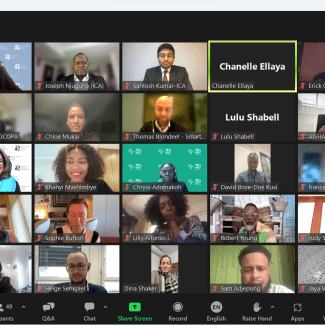
On 31st January, the International Trade Centre (ITC), the African Export–Import Bank (Afreximbank), and the International Cooperative Alliance (ICA) launched a consultative dialogue with African fashion designers to explore the possibilities to create a Pan-African fashion collective organised in a cooperative. According to a poll, 83% of African fashion designers would like to come together under a cooperative umbrella.
This first meeting set the foundations for a feasibility study for a Pan-African fashion collective based on cooperative principles that reflects on the needs and context of the sector and the possible legal frameworks.
In the meeting, representatives of the ICA, ICA Africa and CICOPA introduced the cooperative business model and guided the attendees on the types of cooperatives that could better meet the African fashion designers’ needs.
Inspiration came from the Self Employed Women’s Association (SEWA) from India, Smart from Belgium, and Doc Servizi from Italy. Operating in the cultural and creative sector, representatives of these cooperatives - Palak Gadhiya and Jaya Vaghela of SEWA, Thomas Blondeel of Smart and Francesca Martinelli of Doc Servizi - explained the concrete benefits the cooperatives offer to their members.
The social-economic importance of the fashion industry in Africa was highlighted by Khanyi Mashimbye, Afreximbank. She noted that creating a cooperative can particularly support women, youth and artists to improve working conditions and reduce poverty.
In the closing remarks, Lily Sommers, ITC, defined the cooperative model as modern and adaptable and stressed the support that African fashion designers can get from the global cooperative network in their journey towards the creation of the Pan-African collective.





